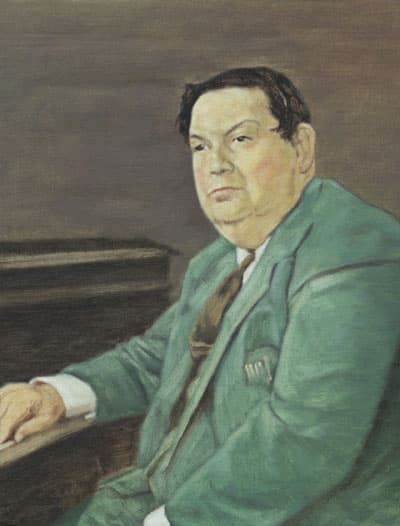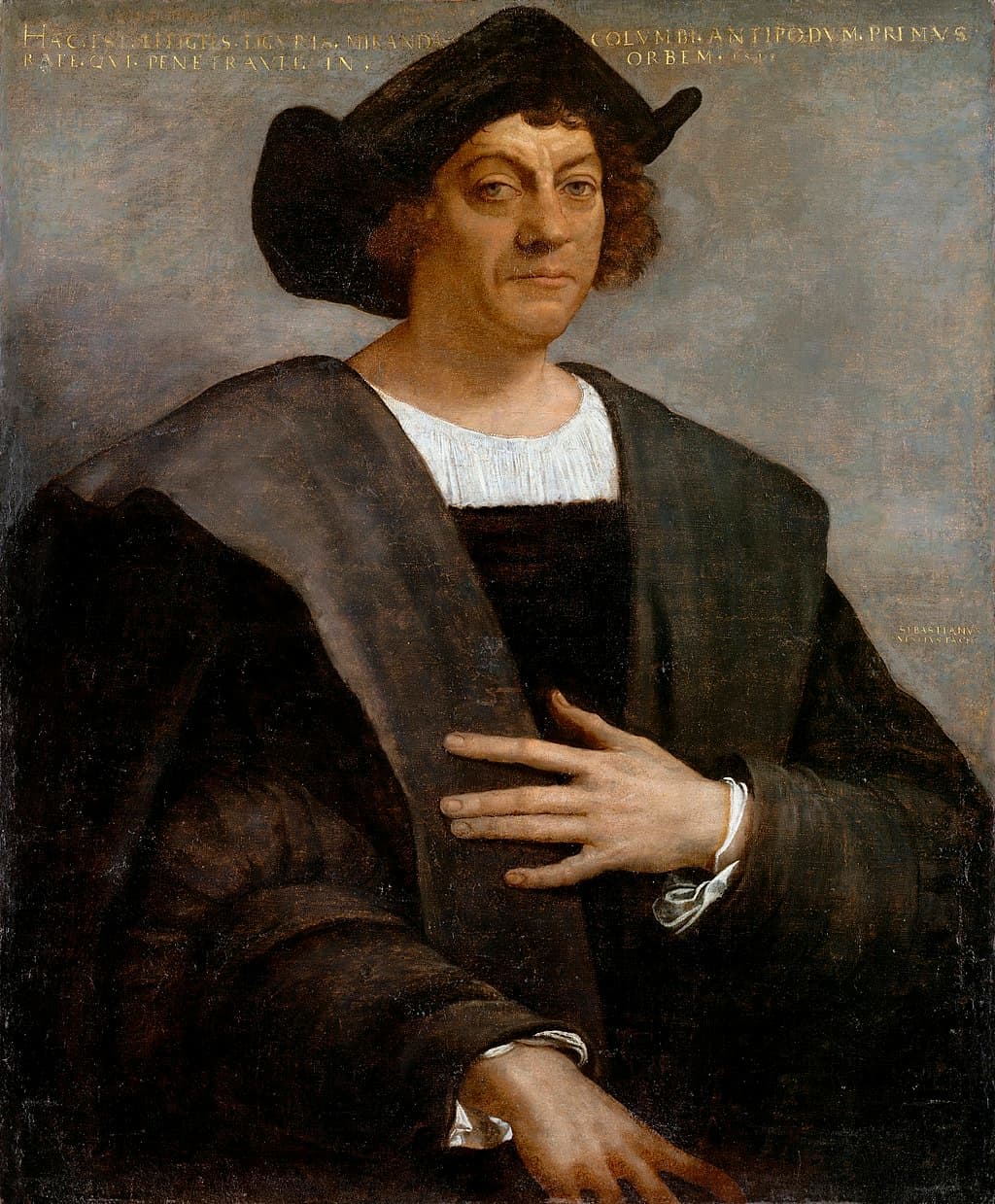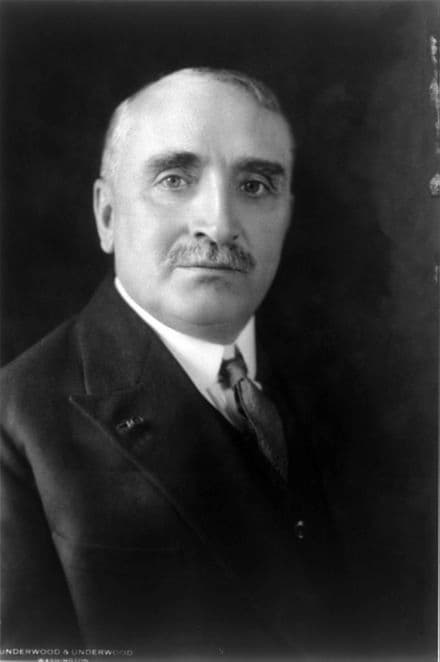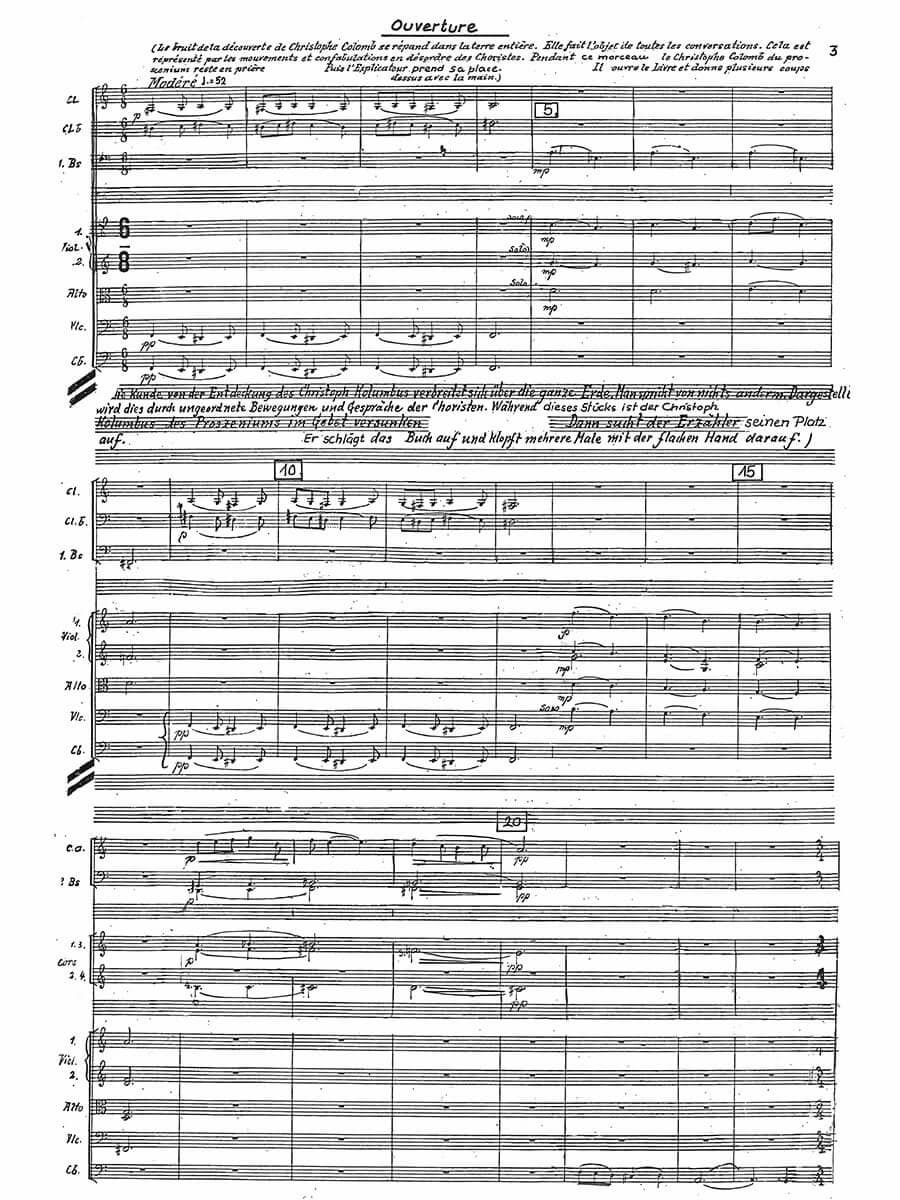The Staatsoper in Berlin saw one of the most elaborate and spectacular productions of 20th-century opera on 5 May 1930. Christophe Colomb to a libretto by Paul Claudel and with music by Darius Milhaud features more than 30 characters in 27 scenes lasting the better part of 3 hours. The opera moves back and forth in time to present a mosaic of contrasting episodes that illustrate important incidents and personalities in the story of Christopher Columbus.
Darius Milhaud: Christophe Colomb (Trailer)
Max Reinhardt and Paul Claudel

Darius Milhaud
Interest in Christopher Columbus as an opera subject was stimulated by the 400th anniversary of the explorer’s voyage in 1892. On that occasion, Alberto Franchetti wrote his Cristoforo Colombo, a subject that was taken up by three major composers during the interwar decades. At the centre of contemplation was the question whether Columbus was a hero or a villain. He did discover America, but what about the consequences of that discovery? Milhaud’s opera provides both sides of the coin, as the explorer is shown as a bold sailor, a visionary, a dreamer, “but also an egoist, a liar, debtor, invader and the restorer of slavery.”
The Milhaud setting was ultimately the creation of theatrical producer Max Reinhardt, who was looking to stage a bombastic spectacle involving 2,000 performers, an orchestra of 250, 60 projectors, four carillons, and plenty of horses. Reinhard commissioned Paul Claudel to write a suitable libretto, and he was hoping that Richard Strauss would provide the music. In the end, Claudel held out for his close friend Darius Milhaud, as both had worked for the French Ministry in Brazil.
Darius Milhaud: Christophe Colomb, “L’Amerique”
Theatre and Music

Portrait of a Man, Said to be Christopher Columbus, 1519
As you might well imagine, the action is rather complicated, and in the original version, an
introductory processional introduces Columbus (baritone). He is seen dying in poverty in Valladolid. Flashbacks recount the events of his life, and the opera concludes with his entry into Paradise in the wake of his patroness, Isabella of Spain (soprano.) The episodes are linked by a narrator, frequently supported by choral speech. A scholar writes, “the action is part realistic, part allegorical, part stylized, part expressionist as Columbus appears not only as himself but also as his conscience, his alter ego and, in one scene, as a youth, a grown man and his shadow.”
Milhaud composed the music in 1928 and remarked, “the tremendous diversity of scenes and enormous rhythmic drive that animates the entire drama make it an absolutely fascinating challenge.” As expected, it is a vast and eclectic score combining spoken dialogue with big choruses, dance, jazz, and polyphony. It has been compared to baroque opera and the co-existence of different styles. “The opera, which is dominated by the presence of the sea, is as varied as the sea itself. Utterly different musical styles and methods combine or succeed each other.”
Darius Milhaud: Christophe Colomb (excerpt)
Multimedia

Paul Claudel
Everything was thoroughly prepared for the premiere on 5 May 1930. The chorus alone had been through 100 rehearsals, and 25 stage rehearsals with the orchestra were held additionally under the conductorship of Erich Kleiber. However, it was much more than a simple opera performance as Max Reinhard choreographed hundreds of slides to be projected onto the stage at various points in the narrative. In addition, 42 minutes of the film screened black slaves in shackles, the ghosts of Columbus’ family and of his younger self, historical events, and even the supernatural. To Barbara Kelly, the film “emphasising the symbolic and spiritual dimensions of the play was influenced by Japanese puppet theatre.”

Darius Milhaud’s Christophe Colomb Overture
For more of the best in classical music, sign up for our E-Newsletter
